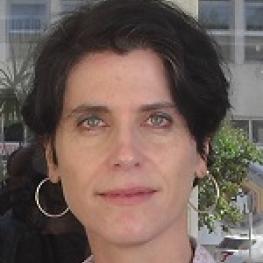An Invitation to Future Kaplanian Scholarship
by Dr. Vered Sakal
For many years, most of the scholars who wrote about Kaplan were people who knew him personally. During the past few decades, however, more scholars are joining the conversation about Kaplan’s work. This shift is both welcome and unsurprising, as Kaplan continues to fascinate academics and Jewish leaders who seek to communicate his work to a broad as possible audience. Being one of those “second generation” Kaplan scholars, I find this transition – from firsthand to secondhand knowledge – fascinating. Are we getting to know a different Kaplan, when we separate the man from the ideas? I believe we are, as the distance allows us to explore the relevancy of Kaplan’s work to our own time and socio-political realities.
Kaplan, the founding father of Reconstructionist Judaism, based his project of the reconstruction of Judaism on the rejection of supernatural cosmology and the idea of a transcendent God. But even though his work is often portrayed in psychological and sociological terms, his writing also addresses deep philosophical and theological issues, such as linguistics, ontology and epistemology. Presented as such, we come to see how Kaplan’s efforts can relate to current religious debates that explore the tension between transcendent and non-transcendent religious worldviews and seek justification of religious pluralism. For, even though Kaplan’s work does not offer an organized theoretical account of these matters, it does contain the necessary elements to support and inform such discussions.
It is very exciting to think about the new ways through which Kaplan’s vast body of work – some of it is still being sorted and published for the first time by scholars such as Mel Scult – invites 21st century scholars to explore, expand and reshape the Jewish universe. This same universe that Kaplan was so keen on preserving and adapting for Jewish people all over the world – an open, pluralistic, optimistic universe in which individuals and groups can achieve peace and salvation.

Vered Sakal is the 2021-2023 Melanie and Andrew Goodman visiting fellow for the Olamot Center for Scholarly and Cultural Exchange with Israel, at Indiana University, Bloomington. She holds a PhD in Jewish thought from the Hebrew University of Jerusalem. Vered was a fellow at the Tikva Center for Law and Jewish Civilization at NYU, the Katz Center for Advanced Judaic Studies at the University of Pennsylvania, the Minerva Humanities Center at Tel Aviv University, and the Bloomington Symposia, IU Institute for Advanced Study. Her fields of research are religious studies, modern Jewish thought, liberal theory and subaltern studies. Vered is ordained as a Rabbi by Hebrew Union College in Jerusalem.
